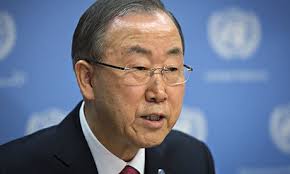The World Food Program on Monday suspended food aid to more than 1.7 million Syrian refugees in neighboring countries, blaming a financing crisis caused by no respected cash pledges.
 The World Food Program on Monday suspended food aid to more than 1.7 million Syrian refugees in neighboring countries, blaming a financing crisis caused by no respected cash pledges.
The World Food Program on Monday suspended food aid to more than 1.7 million Syrian refugees in neighboring countries, blaming a financing crisis caused by no respected cash pledges.
The Rome-based UN agency said refugees in Jordan, Lebanon, Turkey, Iraq and Egypt risked going hungry this winter if donors do not urgently provide the $64 million (51 million euros) needed to finance the distribution of food vouchers through December.
"This couldn't come at a worse time," UN High Commissioner for Refugees Antonio Guterres said in a statement. "I urgently appeal to the international community -- support WFP now, don't let refugees go hungry."
While WFP didn't name which countries haven't made good on their commitments, foreign ministers from Germany, Finland and Sweden told reporters in Copenhagen their countries could do more to fill the funding gap.
"We have to strengthen our engagement and give humanitarian aid for the refugees and strengthen the structure of those countries who are hosting the refugees," German Foreign Minister Frank-Walter Steinmeier said.
WFP said the refugees affected by the suspension of food aid included many children in Lebanon and Jordan facing harsh winters without adequate clothing or footwear, and living in tents already caked in mud that has made hygiene precarious.
Most in peril are the tens of thousands of families that are entirely dependent on international food aid, Guterres added.
Distribution of electronic food vouchers is to resume as soon as the pledged cash comes in.
WFP says it has fed millions of displaced people inside Syria and up to 1.8 million refugees in Lebanon, Jordan, Turkey, Iraq and Egypt in the three and a half years since the conflict erupted.
More than half of Syria's population has been forced to flee their homes since war began in their country in March 2011.
Before the conflict began, Syria had a higher gross domestic product (GDP) than countries like Tunisia and Jordan, and it ranked favorably on human development indicators including health and education.
But with the brutal violence that erupted in mid-March 2011, regional investors have fled, key infrastructure has been destroyed and the economy has withered.